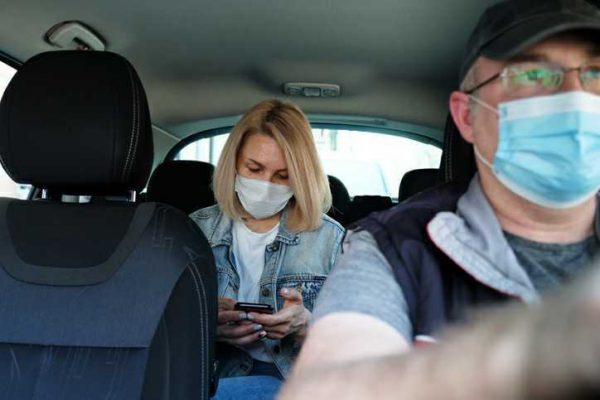
Khaled Zayyid was an Uber driver who dedicated up to 80 hours a week for the company. After taking time off from work due to California's stay-at-home order, Zayyid had to return to work in order to make ends meet. He came home early one day feeling exhausted and had trouble breathing. He died in July due to complications from COVID-19, according to the Las Angeles Times.
Zayyid's wife and children not only had to deal with the grief of his death, but they also had to struggle with the worse economic downturn since the Great Depression.
Workers' compensation death benefits denied for Zayyid's family
Zayyid's family applied to the California workers' compensation program to obtain death benefits, but weren't able to obtain benefits. The family should have received at least $320,000 in death benefits through the state workers' compensation program, since his wife and two teenage kids were dependent on Zayyid's earnings.
The family received a letter rejecting the workers' compensation claim because Zayyid was classified as an independent contractor, rather than an employee. Yet, under Assembly Bill 5, Uber, Lyft, and other similar companies are supposed to classify gig workers as employees rather than independent contractors. This would allow gig workers to receive workers' compensation benefits.
Uber, Lyft, DoorDash, and Instacart are among the gig economy companies that have resisted AB5 to avoid having to pay for workers' compensation and other benefits. These companies strongly endorse Proposition 22, which would exempt such companies from classifying gig workers as employees. In fact, proposition 22 is on the ballot for the general election on November 3, 2020. California workers will vote "yes" or "no" on this legislation.
How Proposition 22 hurts workers and their families
If Proposition 22 passes, it may not only allow gig companies to become exempt from providing benefits to workers in California, it could set a trend for the rest of the U.S. and normalize poor treatment of gig workers. While it would require gig companies to provide medical expense coverage for a minimum of $1 million for job-related injuries, providing more coverage is only optional.
The state workers' compensation program has no limit on how much coverage is paid for medical expenses. In addition, the state workers' compensation program covers lifelong assistance for those who suffer from a work-related permanent disability. The Proposition 22 policy would only cover disability payments for up to two years. Moreover, workers who become sick on the job with COVID-19 would be less likely to obtain workers' compensation benefits. That's despite an executive order signed by Governor Gavin Newsom in May allowing essential workers who become infected with COVID-19 on the job to obtain benefits.
Proponents of Proposition 22 are capitalizing on classifying those with flexible work schedules as independent contractors since they don't share the same rigid work schedules as traditional employees. As we have discussed in California’s Prop 22 – Myth Buster #1, whether or not someone works a flexible schedule has nothing to do with how he or she is classified as a worker. Good employers will offer employees some flexibility in their schedules. The idea that only independent contractors can work flexible schedules is merely a myth.
Contact our San Diego law firm to learn about your rights
If you sustained an injury on the job, it shouldn't matter what type of schedule you work. You deserve to be compensated for medical costs and lost wages while you're unable to work. That’s why it’s important that you speak to an experienced San Diego workers' compensation attorney at McLaughlin & Sanchez to learn about the legal rights available to you.
Contact us online and schedule your free case review.
